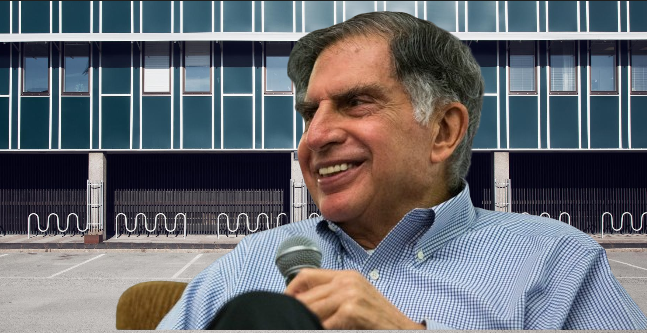Ratan Tata’s tenure as chairman of Tata Sons from 1991 to 2012 marked a historic transformation for the Tata Group. Through strategic acquisitions and global expansion, Ratan Tata repositioned the Tata Group from a traditional Indian business house to a diversified global conglomerate. This article delves into his visionary leadership, key acquisitions like Corus Steel and Jaguar Land Rover, and the group’s remarkable revenue and market capitalization growth, all while upholding Tata’s ethical legacy.

Ratan Tata’s Early Leadership: Vision and Strategy
When Ratan Tata took over as chairman of Tata Sons in 1991, the Tata Group was already a well-established Indian conglomerate, but it lacked global prominence. The group consisted of over 95 companies, each operating independently with little synergy. Tata’s early days were focused on centralizing control, consolidating the group, and ensuring better coordination across its diverse portfolio of businesses, which included:
- Chemicals (Tata Chemicals)
- Steel (Tata Steel)
- Hotels (Taj Hotels)
- Software (Tata Consultancy Services or TCS)
- Consumer Goods (Tata Salt, Titan watches, soaps)
Tata sought to modernize the group by promoting innovation, embracing global markets, and driving technological advancements. His early focus was on streamlining decision-making and introducing a more collaborative approach across Tata’s vast enterprises.
- Market Capitalization Surge:
- 1991: When Ratan Tata took over, the combined market capitalization of the Tata Group’s listed entities was around Rs 30,000 crore.
- 2012: By the time he retired, the market cap had surged to Rs 5 lakh crore, representing a 17-fold increase.
- 2024 (Post-Tata): Today, the group’s market capitalization has grown to Rs 30 lakh crore, reflecting the strong foundation established under his leadership.
- Revenue Growth:
- 1991: Tata Group’s revenues stood at approximately Rs 18,000 crore.
- 2012: Revenues had grown to an impressive Rs 5.5 lakh crore, driven by diversification, international acquisitions, and new market opportunities.
Strategic Acquisitions and Global Expansion
Ratan Tata’s most significant contributions were the bold and high-profile acquisitions that placed Tata Group on the global map. Some of the most iconic deals include:
- Tetley Tea Acquisition (2000):
- The Deal: Tata Tea (now Tata Consumer Products) acquired the UK-based Tetley Group for $450 million. This marked the first major international acquisition by the Tata Group.
- Impact: The acquisition propelled Tata into the global tea market, making it the world’s second-largest tea company. This acquisition not only provided Tata access to global markets but also brought innovations like tea bags to India.
- Corus Steel Acquisition (2007):
- The Deal: Tata Steel acquired the Anglo-Dutch steelmaker Corus for $12 billion, in what was one of India’s largest-ever international acquisitions.
- Impact: This acquisition made Tata Steel the fifth-largest steel producer in the world. Although the deal posed challenges during the 2008 financial crisis, Ratan Tata’s long-term vision helped Tata Steel compete globally with advanced technology and scale.
- Jaguar Land Rover Acquisition (2008):
- The Deal: Tata Motors acquired Jaguar Land Rover (JLR) from Ford for $2.3 billion. This acquisition brought two iconic but struggling luxury car brands under Tata’s wing.
- Impact: Despite initial skepticism, the acquisition became one of Tata Motors’ most profitable ventures. Under Tata’s leadership, JLR was revived, with new models like the Range Rover Evoque becoming global successes. Today, JLR is a crucial part of Tata Motors’ portfolio, contributing significantly to its revenue and global reputation.
- Tata Consultancy Services (TCS) and the IT Boom:
- Although TCS was not an acquisition, its growth under Ratan Tata was extraordinary. By taking the company public in 2004, Tata enabled TCS to become one of the largest IT services companies globally. TCS played a pivotal role in the Indian IT revolution, and today, it is the largest contributor to Tata Group’s revenue and market cap.
Focus on Innovation and Corporate Responsibility
Ratan Tata’s vision extended beyond just financial growth. His emphasis on innovation, ethical governance, and societal impact was a key part of his leadership.
- Tata Nano:
- In 2008, Tata launched the Tata Nano, aimed at being the world’s most affordable car, designed for India’s middle class. Although the car didn’t achieve long-term commercial success due to branding issues, it reflected Tata’s commitment to innovation and inclusivity.
- Corporate Social Responsibility (CSR):
- Under Ratan Tata, the group continued to uphold its tradition of ethical governance. The Tata Trusts, which own a significant portion of Tata Sons, ensured that a large part of the group’s profits were channeled into philanthropy. This focus on CSR cemented Tata Group’s reputation as an ethical conglomerate, committed to societal welfare.
Legacy and Impact
By the time Ratan Tata stepped down as chairman in 2012, he had fundamentally reshaped the Tata Group. His tenure saw the group transition from an India-centric business to a global conglomerate with significant interests in Europe, North America, and other parts of the world. The group’s market cap surged, and its revenue grew exponentially. Under his leadership, Tata became synonymous with trust, innovation, and global ambition.
- Under Ratan Tata, the group continued to uphold its tradition of ethical governance. The Tata Trusts, which own a significant portion of Tata Sons, ensured that a large part of the group’s profits were channeled into philanthropy. This focus on CSR cemented Tata Group’s reputation as an ethical conglomerate, committed to societal welfare.
